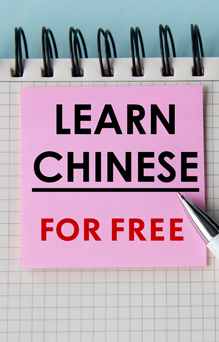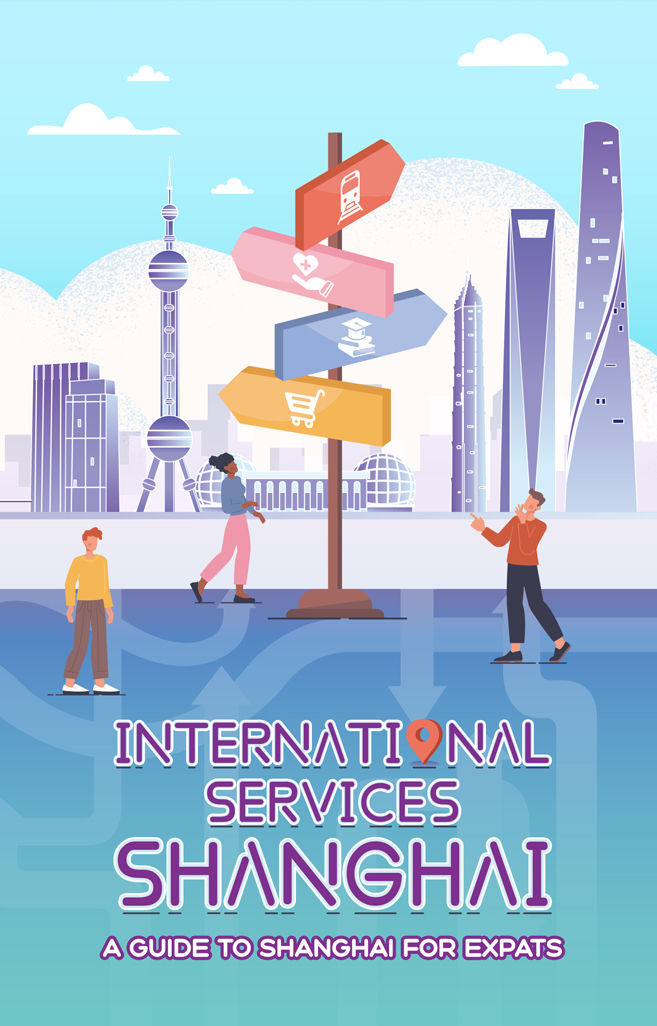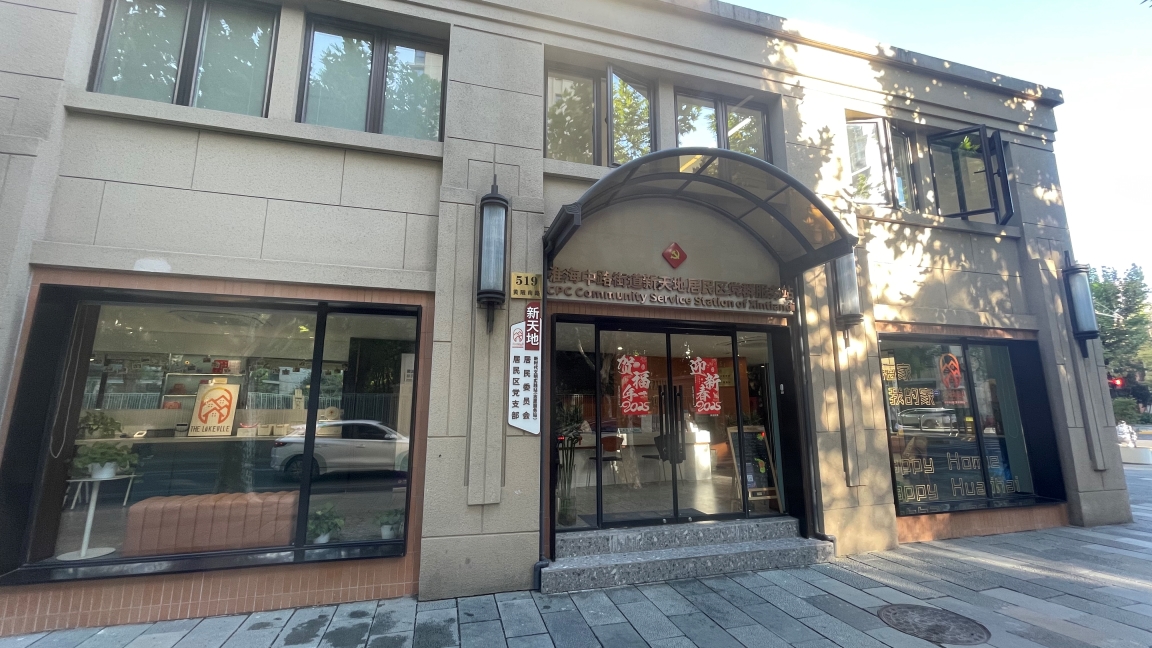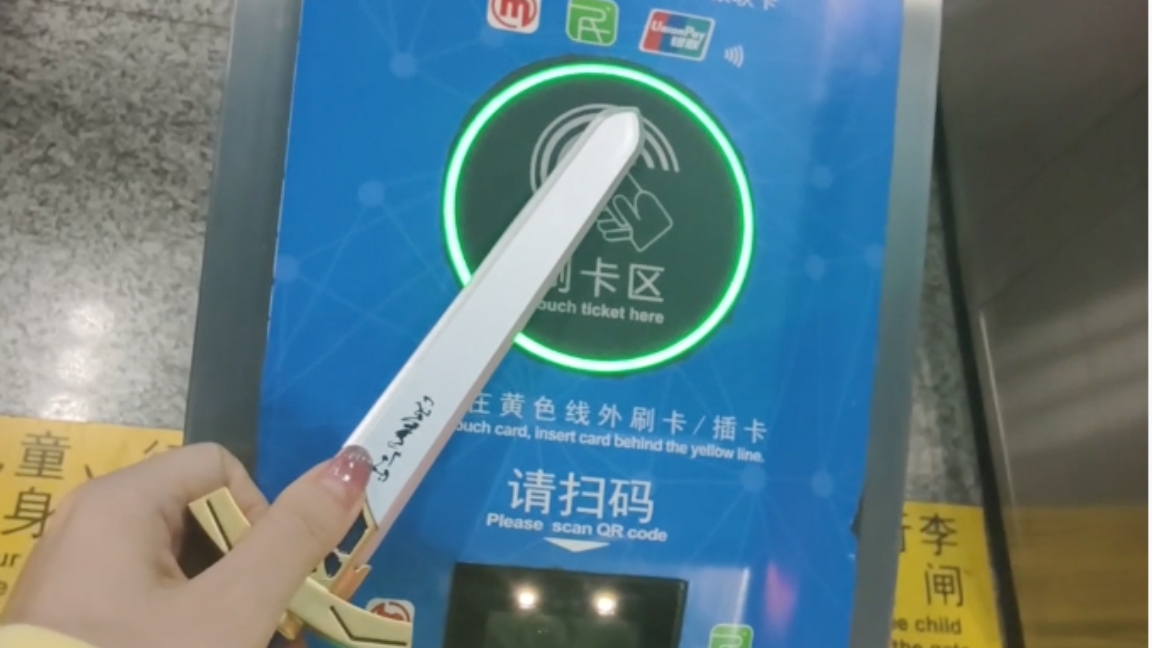[Health Byte] World's largest pancreatic disease center is in SH
Editor's Notes:
[Health Byte] is your insider guide to navigating Shanghai's health maze. From the labyrinth of public and private healthcare options to the pulse of cutting-edge medical services, we've got you covered. Each bite-sized article ends with a health tip, making wellness in the city more accessible than ever. Wondering about hospital features, where to find bilingual medics, or the scoop on insurance coverage? "Health Byte" breaks it down, offering clear, actionable insights.
![[Health Byte] World's largest pancreatic disease center is in SH](https://obj.shine.cn/files/2025/05/07/27c2f7f6-209b-4211-9675-2ff3c1c5187b_0.jpg?x-image-process=style/style-cns)
You may have noticed by now, but Shanghai is home not only to top-tier public hospitals, but many which are world-leading research institutions. Ruijin Hospital is one of these places, which we covered a few weeks ago with trialing new medical devices that can test blood glucose levels without drawing blood.
Shanghai now hosts one of the world's most advanced centers for pancreatic disease.
And now Shanghai is now home to the world's largest, fully integrated, one-stop pancreatic disease diagnosis and treatment center based in Ruijin Hospital. It's a mouthful, sure, but what it means is this: If it's pancreas-related, Ruijin Hospital is a place to get cutting-edge treatment. Surgery, intensive care, minimally invasive endoscopic procedures, interventional imaging, tumor pathology, even research – it's all under one roof, in one of the most advanced facilities on the planet.
In just the past five years, the center at Ruijin Hospital has been cranking out numbers that are hard to ignore: Over 5,000 patients treated per year, with more than 2,000 complex pancreatic cancer surgeries performed annually. That's volume at a scale that shifts global benchmarks.
"Having treated over 30,000 pancreatic cancer cases, the largest quantity in the world, our center has become a global leader in comprehensive care on the disease. The five-year survival rate at our center is 21.2 percent, almost doubling the global average of 9 to 12 percent," says Dr Shen Baiyong, vice president of Ruijin Hospital and director of the pancreatic disease diagnosis and treatment center. "For those in stage-1, our survival rate is 35.3 percent, a new benchmark in the world."
These numbers are signs of a shift that China is no longer playing catch-up in the field of medicine, and Shanghai specifically, is taking global leadership. At Ruijin, the fight against pancreatic cancer is happening at a scale and success rate the world is starting to watch very closely.
![[Health Byte] World's largest pancreatic disease center is in SH](https://obj.shine.cn/files/2025/05/02/3af6ad5a-1264-4699-95f0-573d2c5dad19_0.jpg?x-image-process=style/style-cns)
A New Chapter for Chinese Medical Expertise & International Recognition
Ruijin's growing expertise is putting China on the map in global medicine. Dr Shen recently became the first and only Chinese expert to help write a consensus statement (a unified agreement on best practices by experts) for treating pancreatic cancer in Asia. His involvement reflects China's rising authority in the field and solidifies Ruijin's status in international medical circles.
"This consensus statement, which was released in April, brings together top experts from China, Japan, South Korea and Singapore to create treatment guidelines tailored for Asian patients," Shen explained. "We adjust international standards to match the reality here – economic gaps, medical resource differences and the unique needs of local patients. We also keep traditional medicine in the mix, ensuring people from all financial backgrounds get the treatment they need."
Ruijin is setting the standard for pancreatic cancer treatment across Asia, combining cutting-edge expertise with accessible care – a rare mix in modern healthcare.
![[Health Byte] World's largest pancreatic disease center is in SH](https://obj.shine.cn/files/2025/05/02/9160d875-1371-4083-a0c5-636a87d7ff20_0.jpg?x-image-process=style/style-cns)
Pancreatic Cancer: One of the Deadliest and Most Unpleasant Foes
Pancreatic cancer remains one of the most lethal cancers worldwide, claiming lives with brutal efficiency. Nearly 500,000 new cases crop up globally every year, and China alone accounts for about 120,000 of those.
One of the biggest challenges is that pancreatic cancer is often detected too late. Most patients don't find out until the disease is in its terminal stage, long past the window where surgery could make a difference. Even when caught earlier, treatment options are limited. The first-line chemotherapy drugs available are few, and there are almost no good alternatives when those stop working.
Shen, however, sees a path forward. "The development of precise medicine is offering new hope to pancreatic cancer prevention and control. We are working on three key projects to push pancreatic cancer treatment into a new era," he said. "We're building an AI-based early diagnosis system to catch the cancer sooner, researching a cancer vaccine, and optimizing treatment policies with existing drugs."
The vaccine in development is an antibody-drug conjugate (ADC), which is a targeted treatment that delivers highly potent drugs straight to the tumor. The goal is to increase precision while reducing damage to healthy tissue. "It's expected to lower relapse rates, and we're about to launch the country's first multi-center clinical trial for the drug," Shen said.
Ruijin isn't just following the global trend; it's setting it. The hospital is leading, supporting or participating in a range of clinical trials focused on new treatments and innovative drugs. Shen is confident that some of these efforts will bear fruit within the next three to five years, offering hope to patients and reinforcing China's position in the global medical landscape.
Pancreatic Cancer Can Affect Anyone. Here's How to Avoid It:
Pancreatic cancer isn't random. It's linked to lifestyle choices – smoking for years, eating high-fat diets, drinking heavily and carrying extra weight. Genetics matter too, but habits often set the stage.
"For pancreatic cancer, we follow a three-tier prevention strategy," said Shen. "The first level is managing risk factors – quitting smoking, cutting back on alcohol and maintaining a healthy weight. The second level is about early detection: regular screenings for people at high risk. The third level is focused on proper treatment and rehabilitation."
Pancreatic cancer is hard to spot early. Symptoms are often mild – pain in the upper abdomen, unexpected weight loss or a sudden diagnosis of diabetes. "People with a family history, long-term smokers or those with chronic pancreatitis should get yearly check-ups," Shen advised. "That means ultrasound scans and biomarker tests. If anything looks suspicious, we move on to CT or MRI for a clearer picture and early detection."
![[Health Byte] World's largest pancreatic disease center is in SH](https://obj.shine.cn/files/2025/05/05/de371257-4b53-4a99-8a3c-c1a6bcab4d55_0.jpg?x-image-process=style/style-cns)
Medical Breakthrough: Gastroesophageal Reflux Disease, A New Approach
Gastroesophageal reflux disease (GERD) is common, uncomfortable and stubborn. It is not just heartburn. What happens with GERD is, acid backs up into the esophagus, burning its way up and leaving a trail of problems. For years, the options were limited: medication or surgery. Pills that dull the burn but mess with your digestion, or invasive procedures that cut deep and heal slow.
Shanghai Ninth People's Hospital is changing that with a new technique – peroral endoscopic cardial constriction (PECC). It's minimally invasive and designed for people too old or too weak for traditional surgery. Last month, doctors there used it on a 75-year-old woman with severe GERD.
"GERD is a very prevalent disease and patients have to take anti-acid medicines for a long time, but such medicine can influence digestion and even increase the risk of gastric cancer. But surgery is costly, imposes big trauma, and has a slow recovery," said Dr Wang Dong, director of the hospital's digestive disease department.
PECC changes that. "PECC is to narrow the cardia through mucosal ligation to alleviate acid reflux symptoms. Compared with traditional open-cut surgery, it is safe, simple, less costly, and allows a quicker recovery," he said.
The process is precise, threading through the mouth to fix the valve without a single cut. Patients walk out the next day, not weeks later. Less cost, less pain, less time in recovery – Shanghai is moving GERD treatment forward.
![[Health Byte] World's largest pancreatic disease center is in SH](https://obj.shine.cn/files/2025/05/05/e77ca6d7-7847-457b-b698-cafff1abfa59_0.jpg?x-image-process=style/style-cns)
Health Byte Tips: Sensitive Skin on the Rise
More than half of Asian women now report having sensitive skin. The numbers are climbing. A decade ago, it was 36 percent among Chinese women. Today, it's over 50 percent. Lifestyle changes, stress, diet, pollution and even shifting weather patterns are driving the surge.
People with sensitive skin often age faster than those without it. Experts at the Sixth Sensitive Skin Summit in Shanghai recommended functional skincare products for better protection and support.
"Exposure to unprotected sunlight and the improper use of hormone creams can lead to serious skin problems," said Dr He Li from the First Affiliated Hospital of Kunming Medical University. Her research team identified CLDN-5 as a key gene in the skin's defense. When the barrier weakens, skin becomes more reactive and more prone to damage.
He's team moved their findings into product development. "We have developed domestic skincare products making CLDN-5 a target and boost the combination of clinical discovery and practical use to benefit the public and compete with international counterparts," she said.
One of their breakthroughs came from Yunnan. Her team found that prinsepia utilis, a local plant, promotes skin barrier repair by increasing CLDN-5 expression. It's now part of commercial skincare lines, putting Chinese innovation into everyday use.
![[Health Byte] World's largest pancreatic disease center is in SH](https://obj.shine.cn/files/2025/05/06/3b004675-548b-43ea-9785-237863de95d8_0.jpg?x-image-process=style/style-cns)
Upcoming Topics
Herbs are not just for herbal soups! Local doctors in China are experimenting with herbs, by using them to transform things like shampoo, biscuits and facial masks. In our next piece, we'll look into some of the neat things doctors are doing in the herbal remedy space.
About the Author
Cai Wenjun is a seasoned health reporter with Shanghai Daily. With extensive experience covering the local medical system, hospitals, health officials and leading medical experts, Cai has reported on major pandemics including SARS, swine flu and COVID-19, as well as developments in the local health industry.







